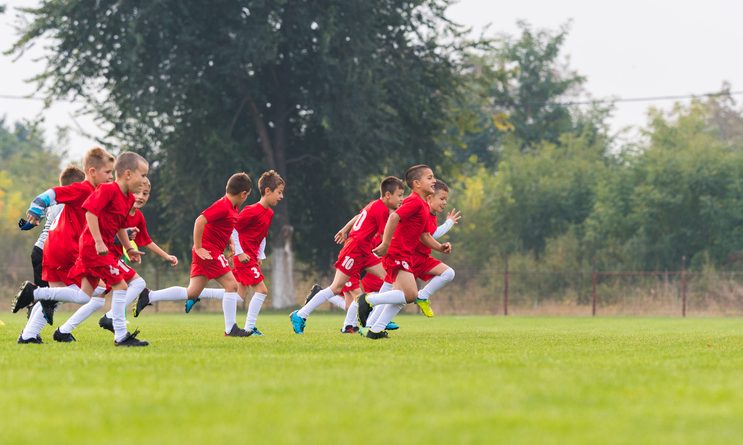Sports and Kids with ADHD
Sports and Kids with ADHD
How do kids with ADHD have more success with sports? One school coach wrote about it online in helpful ways (Colleen Russo, “Tip #5: Wind (And Lose) as a Team”, newsletter@attitudemag.com April 7, 2018).
Kids with ADHD often have boundless energy, so that they are the first ones ready to play and the last ones to leave the gym after a game. This can also come with many frustrations however. Such a child may not understand the subtleties and strategies of teamwork; he (or she) may play as though they are playing alone, rather than as part of a team. Such kids often have learning difficulties as well, so they may lack spatial awareness to see how players on a basketball court have to position themselves, or they may react intensely to frustrations, poor plays, or losses as one way their impulsive behavior shows itself. This child may excel in more individual sports, such as cross-country or swimming.
A knowledgeable parent, who knows the child’s strengths and weaknesses can often advise a coach – if the coach is open to input. Many coaches for volunteer sports, after school, are often not well-informed about ADHD, or other developmental issues, so their well-intentioned efforts may be naïve, mis-directed, even hurtful (though not intended to be so). If attention issues are significant, then constant motion is often best, to help keep a child engaged and more focused.
Ms. Russo shares a few simple guidelines:
- Embarrassing a child is very detrimental to kids with ADHD. These kids experience a lot of shame already, and are highly sensitive to it. More individual coaching, perhaps with a buddy on the team, is often helpful to insure that instruction is understood.
- Practice exercises and drills with energy, change, and much movement. ADHD kids need much stimulation to prevent distraction, impulsive behavior, and “boredom” that leads to troublesome situations.
- More one-on-one time. These kids get lost in group learning situations often, unless it is of inherent interest to the child.
- Frequent checking in with the child, preferably privately, to be sure that instructions are understood and assimilated. Asking the child to repeat the direction helps prevent breakdowns in communication. If a child seems to be disengaged or not following instruction, such checking in will help re-engage the child and prevent more embarrassment/feelings of failure.
- Emphasize that winning and losing is a team result. Even missing the last shot, or striking out to end the game, is a team experience, not an individual failure. Respect among the players and sportsmanship values are a must, from the very first moment of forming a team.
- Rotate players among various positions, so all team members have the more active experiences on a team. Excess energy gets burned up that way, and new skills are developed too.
- Excitement needs to be managed and modulated so that ADHD kids can stay more focused on strategy and teamwork.
- Other tasks can help a child with ADHD when they are not playing. Helping with equipment, keeping score, other tasks can help when the child is waiting their turn.
- Playing with younger children often is helpful, since ADHD kids are sometimes less mature socially or emotionally. If they can be grouped at the younger end of the age range, this will be of likely benefit.
- Help the coach assess the child’s real strengths and make use of them in the sport. If a baseball player has more natural talent at being in the field, then emphasizing that over hitting will be helpful.
A coach who is tuned into a child’s ADHD, with all its complications and challenges, as well as being more aware of how to work with such children, can help a child feel they are a contributing member of the team. As much as the athletic endeavor, such an experience is a crucial part of children benefiting from playing sports.
Alan M. Solomon, Ph.D. is a clinical psychologist in private practice in Torrance, CA. A member of the Independent Psychotherapy Network, he can be reached at 310 539-2772, or dralanms@gmail.com
Copyright 2018 by Alan M. Solomon, Ph.D.

